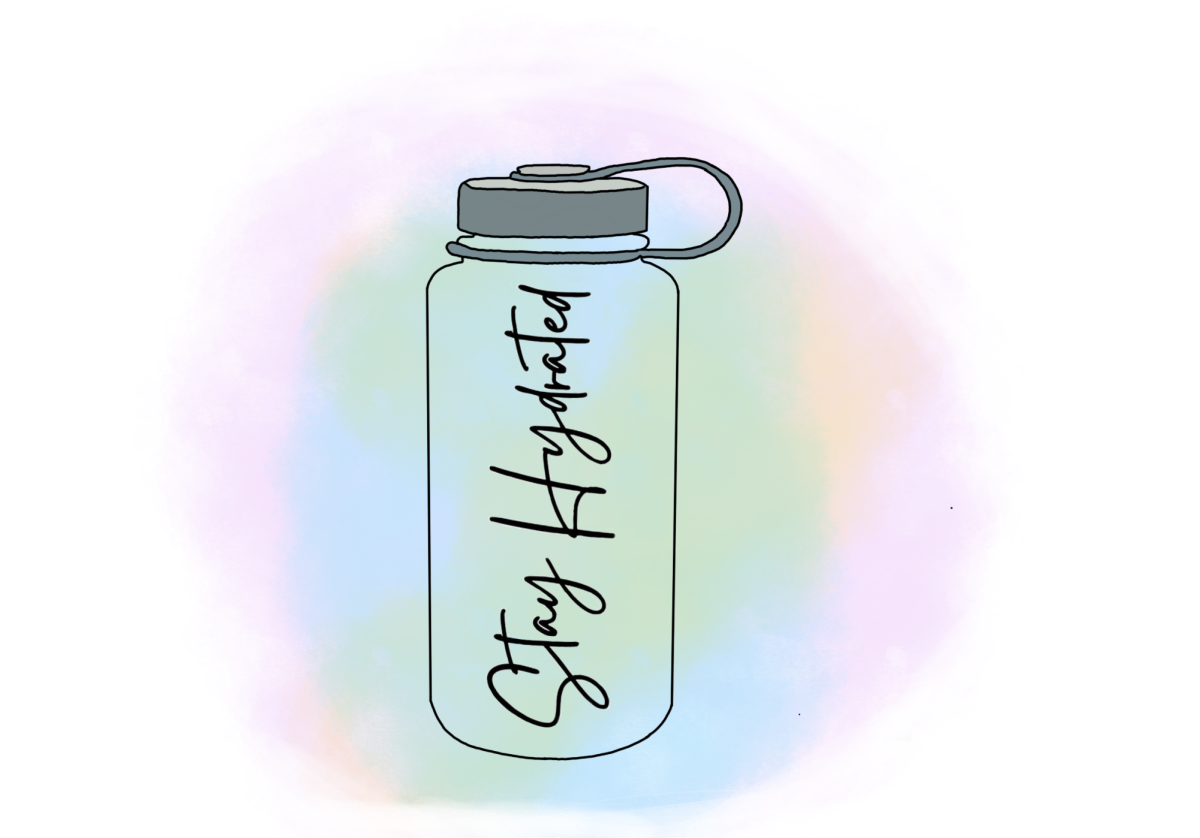Studies repeatedly show that students’ thirst for knowledge cannot be quenched without proper hydration. Yet, Hill students often fail to prioritize their hydration.
Hydration is essential to every bodily function which makes it a critical factor in academic and athletic success. According to Dr. Kristen Spencer, Medical Director, the human body is comprised of 60% water and maintaining optimal hydration is crucial to cellular function.
Hill’s athletic trainers urge students to consciously drink fluids because the body loses water in many ways. Breathing and sweating are two significant outlets of the body’s hydration.
According to Stephanie Schaldonat, Director of Athletic Training, dehydration between 3% – 5% decreases performance and dehydration above 5% increases risk of injury and higher levels present the risk of fainting.
As even low levels of dehydration have clear consequences, it is important to carry a water bottle to have easy access to water.
“Our bodies are designed to have a really great thirst mechanism and a lot of times we walk around feeling thirsty but not drinking water,” Schodolnat said. “If you drink when you’re thirsty you will be well hydrated. Trust your body”.
The Hill News surveyed nearly 30 students on their hydration habits, along with factors that would influence their hydration needs, such as their activity levels.
Some people supplement their hydration with electrolytes but this is unnecessary in most cases. Spencer said that “for the most part water replacement is fine but in very intense contexts electrolytes are recommended.” This would be extreme exercise in hot weather conditions, a circumstance that 15% of Hill students qualify for in a Hill News survey.
According to Schaldonat, optimal hydration improves athletic performance by increasing speed, increasing time to fatigue, increasing power output, and increasing endurance. Hydration is critical at the cellular level and it vital to metabolic and mitochondrial function, the metrics through which the body utilizes energy.
“I notice a big difference in the quality of my workout depending on how hydrated I am” Bach Nguyen ’26 said in an interview. Finn Bivens ’25 expressed a similar sentiment, saying that “there are three ways to prepare for a good workout: being well rested, well fed, and well hydrated. Each of these are critical but hydration is especially important.”
Optimal hydration has significant lifestyle benefits too.
“Proper hydration really improves mood, cognition, and sleep quality, as well as lubricating joints better and providing more energy,” Spencer said.
The same survey conducted by The Hill News outlined how over 50% of the student population drinks less than 8 cups, or about 64 ounces, of water per day. This amount is less than the Mayo Clinic recommendations of 15.5 cups daily for males and 11.5 cups daily for females.
These recommendations do not consider activity levels, however, meaning that in a highly active community such as Hill, hydration needs may be even higher.
The Mayo Clinic also says that about 20% of daily hydration comes from eating foods. According to Spencer, fruits and vegetables are foods that contribute most to hydration due to their high water content. While conventionally healthy, whole foods promote hydration, highly processed foods have very low water content and dehydrate the body.
While dehydration is the most common hydration issue, it is also possible to overhydrate. According to Schaldonat, there is a condition called hyponatremia which is when individuals are especially nervous about dehydration and drink too much water as a result.
Most people would need to drink about 5 gallons of water in a day for hyponatremia to be a real concern. This is preposterously unlikely but still a real danger as this will overwhelm the kidneys. Overhydration is a rare occurrence, dehydration is a much more common hazard.
Colin Wang ’26 is a strong advocate for hydration.
“Being well hydrated is one of the simplest things in your control to improve your quality of life,” Wang said. “Simply carrying a water bottle and making an effort to drink fluids often will improve your academic and athletic performance.”
























